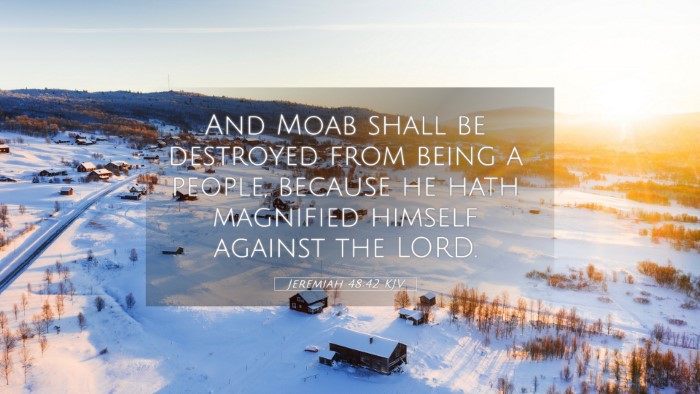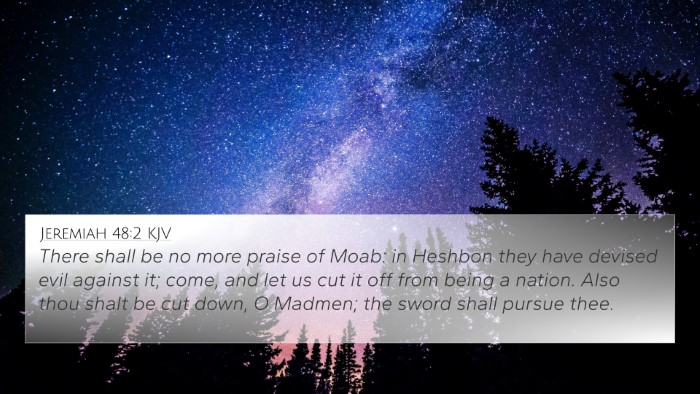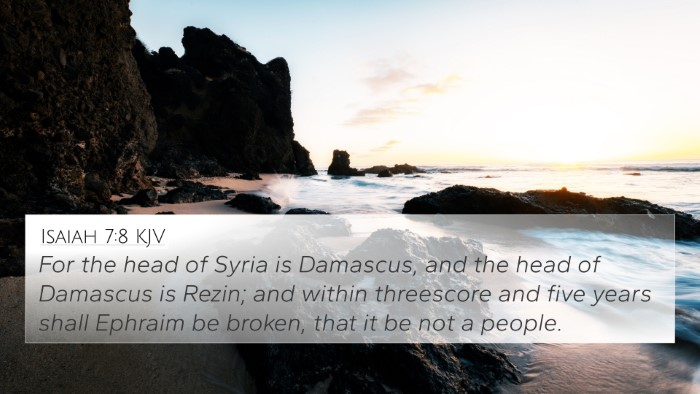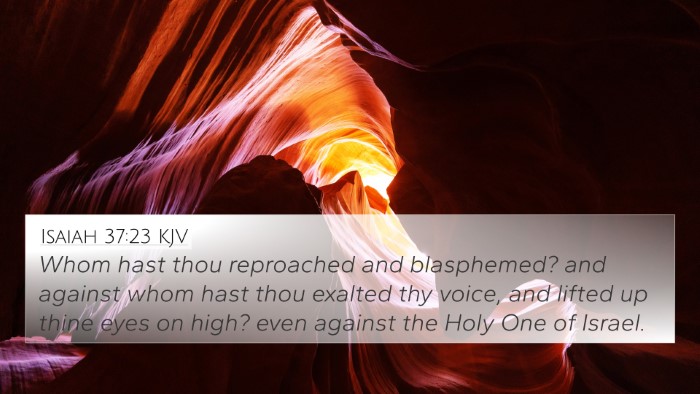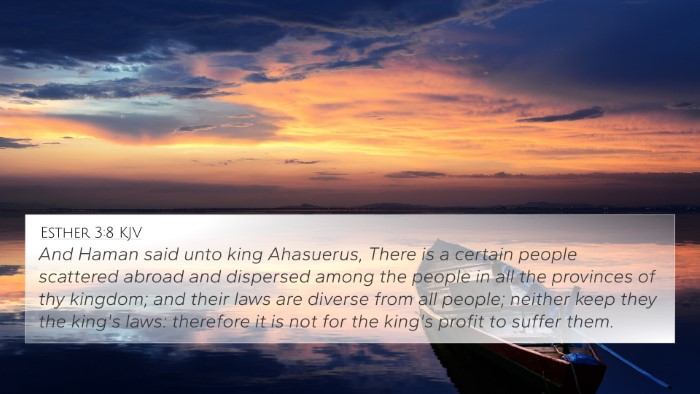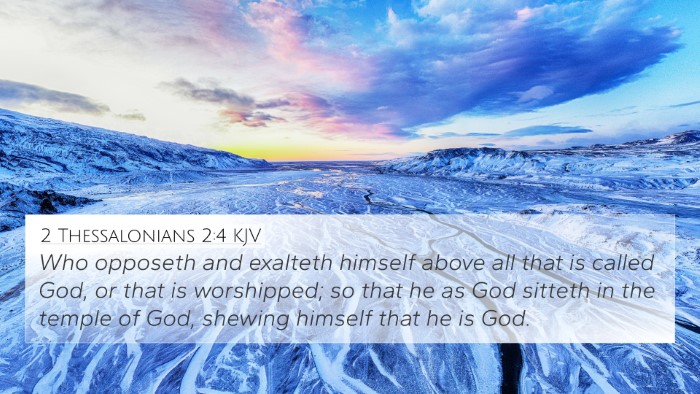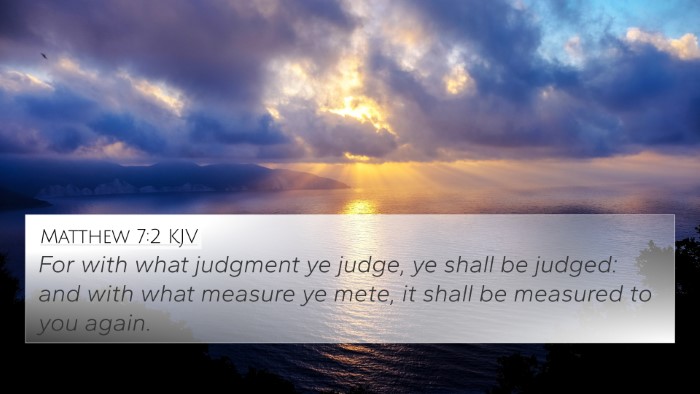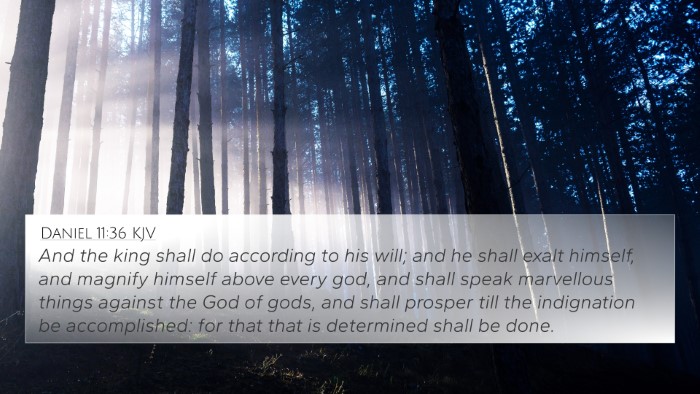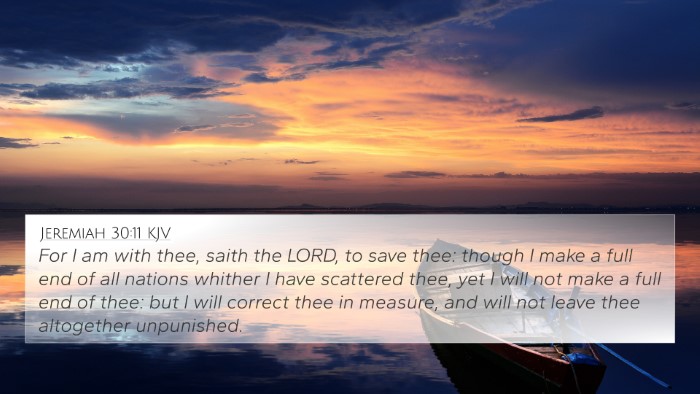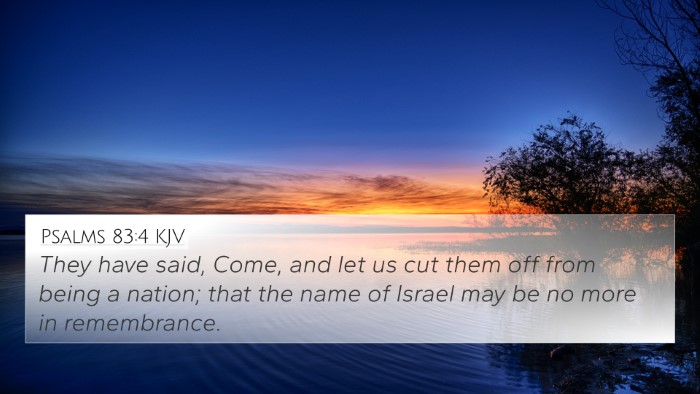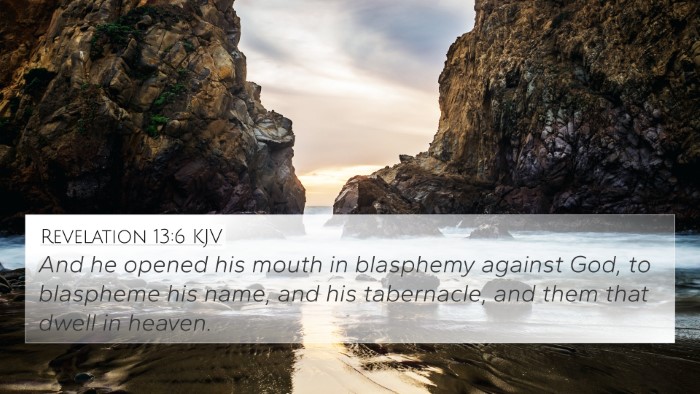Meaning and Analysis of Jeremiah 48:42
Jeremiah 48:42 states, “And Moab shall be destroyed from being a people, because he hath magnified himself against the Lord.” This verse speaks to the downfall of Moab, a nation that turned against God, which is a theme echoed throughout the Bible concerning the fate of nations that oppose divine authority.
Understanding the Context: Jeremiah prophesies the judgment of Moab, illustrating God's ultimate sovereignty and justice. Moab, descendants of Lot, was known for its pride and idolatry. The cultural and historical context highlights how their arrogance against God led to their destruction.
Commentary Insights
Insights from various commentaries elucidate the deeper meanings of this verse:
-
Matthew Henry:
Henry emphasizes the certainty of Moab's destruction as a direct consequence of their pride. He suggests that when a nation turns away from God and elevates itself against His will, it sets the stage for its own demise.
-
Albert Barnes:
Barnes notes that the phrase "shall be destroyed from being a people" underscores total annihilation, reflecting God's severe judgment on those who oppose Him. This serves as a warning to all nations regarding the seriousness of divine retribution.
-
Adam Clarke:
Clarke elaborates on the character of Moab, linking its downfall to their detailed history of rebellion and idolatry. He connects this narrative to broader themes in the Bible of nations facing consequences for rejecting God.
Bible Cross-References
This verse has multiple cross-references with significant connections across scriptural texts:
- Isaiah 15:1-9: This passage prophesies the fall of Moab as well, maintaining the theme of impending doom due to pride and arrogance.
- Ezekiel 25:8-11: The destruction of Moab is again reiterated, emphasizing God’s planned judgment for their transgressions.
- Psalm 46:10: “Be still, and know that I am God” serves as a reminder of God’s sovereignty, reflecting on Moab’s failure to recognize divine authority.
- Proverbs 16:18: “Pride goes before destruction” directly correlates with the sin of Moab, shedding light on the consequences of pride.
- Amos 2:1-3: This passage also discusses the judgment on Moab, making connections to themes of divine justice throughout the prophetic writings.
- Numbers 24:17: A prophecy concerning Moab that hints at their downfall in the future, tying together the tapestry of prophetic literature.
- Jeremiah 49:1-6: Expands on the judgment against Ammon and Moab, highlighting a broader prophetic theme concerning their fate.
- Lamentations 3:34-36: Reflects God’s role as a righteous judge, enforcing justice upon nations that stray from His commandments.
- Romans 12:19: “Vengeance is mine, I will repay” offers an insight into the principle of divine justice that also applies in the context of Moab’s fate.
- Matthew 23:12: “For whoever exalts himself will be humbled” reinforces the overarching theme of humility before God.
Thematic Connections
This verse and its associated commentaries bring forth key themes for deeper exploration:
- Divine Judgment: The consequences of straying from God and engaging in idolatry are severe, as demonstrated by Moab's fate.
- Pride and Humility: Moab's arrogance highlights a critical biblical theme about the importance of humility before God.
- God’s Sovereignty: Across scriptures, God's ultimate power over nations reflects the unchanging truth of His authority.
Tools for Cross-Referencing
For those interested in deeper studies, here are some tools and methods to facilitate cross-referencing in the Bible:
- Bible Concordance: A critical resource for finding specific verses and their themes.
- Bible Cross-Reference Guide: Useful for understanding how different passages relate to one another.
- Comprehensive Bible Cross-Reference Materials: Guides and study tools that aid in connecting verses across the entire scripture.
- Bible Chain References: Systems that allow for thematic chain linking of verses for in-depth studies.
Inter-Biblical Dialogue
The narrative in Jeremiah intersects deeply with various themes found in both the Old and New Testaments, creating a rich tapestry of inter-Biblical dialogue:
- Identifying how the prophecies concerning Moab in Old Testament books dialogue with the teachings found in the New Testament adds layers to theological understanding.
- Exploring the role of judgment and grace can help bridge the themes of destruction in Jeremiah with redemptive messages in the New Testament.
Conclusion
In conclusion, Jeremiah 48:42 serves as a pivotal moment illustrating the consequences of pride against God. By analyzing various commentaries and engaging with cross-references, one begins to see the multifaceted dimensions of divine justice that resonate throughout the entirety of Scripture. As readers explore these connections, they gain insights into the ongoing dialogue that the Bible presents regarding human nature, divine sovereignty, and the call to humility.

